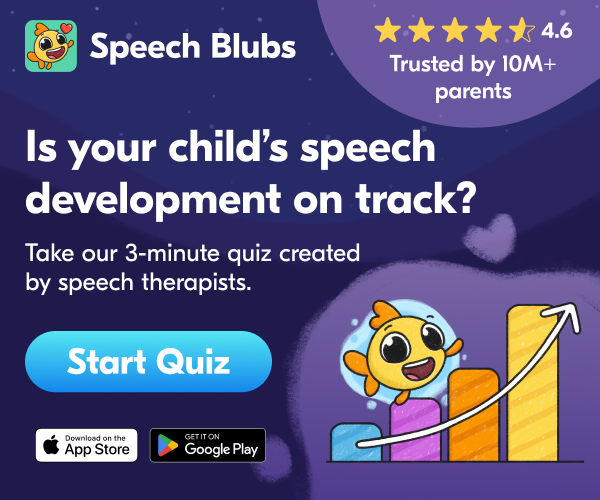How to Prepare for a Parent-Teacher Conference
In This Article
- Ten Questions Parents Should Ask at a Parent-Teacher Conference
- If social or bullying issues are of concern, parents may consider asking;
- If attention issues are of concern, parents may consider asking;
- If academic issues are of concern, parents may consider asking;
- The Child Study Team consists of parents as well as the following professionals:
- Prior to all parent-teacher meetings ending, parents need to ask;
- What are the five most important things a parent should want to know when they walk away from a parent teacher conference?
- What Is a Topic That Is Overlooked in Parent Teacher Communication in General?
- What Are Some Questions Parents Can Ask to Potentially Detect a Learning Disability Early On?
- If you or your school personnel believe that your child may require additional support and services in school, the next step would be to ask for an evaluation for a 504 Plan or an Individualized Education Program (commonly referred to by the letters IEP)
I recommend that parents take notes and obtain a stated plan of action at the end of each meeting. It is important that parents not leave any meeting unless they understand the next steps in securing the specific individualized needs of their child.

Ten Questions Parents Should Ask at a Parent-Teacher Conference
If social or bullying issues are of concern, parents may consider asking;
- “Is my son getting along well with his peers?”
- “Is he sought out during structured or unstructured time?”
- “Does he have one or two friends with whom he feels comfortable?”
- “What steps are being taken to help foster his relationships with his peers?”

If attention issues are of concern, parents may consider asking;
- “Is my daughter participating in class discussions and activities?”
- “Is she paying attention in class and is she engaged in lectures and assigned tasks?”
- “Does she appear to zone out or is she actively disruptive?”
- “What strategies are you incorporating to redirect her back to her tasks?”
- “What are my child’s strongest and weakest subjects?”
- “What are some examples of these strengths and weaknesses?”
- “Are there certain subjects where my daughter appears to be more attentive and engaged in the learning process?”
- “What do you suggest we do to help increase her attention?”
- Is she able to go from initiation to completion of task without assistance?”
- Does she work better when you break the assignment down into manageable components?”
- Does she have the understanding of how to negotiate and navigate assignments working efficiently and effectively at times?”
- Does my daughter demonstrate the ability to control her impulses, and think before she acts?”
- “Is your level of concern for her attention issues sufficient to warrant a ‘Child Study Team’ meeting?”
- “Do you think an evaluation is warranted to understand why attention issues are present?”

If academic issues are of concern, parents may consider asking;
- “What are my son’s strongest and weakest subjects?”
- “What are some examples of his strengths and weaknesses?”
- “How is he being evaluated academically?”
- “Is he submitting his homework in on time?”
- “What is the quality of his homework?”
- “Does he seem prepared for quizzes and tests?”
- “What is his performance on these quizzes and tests?”
- “Does a disparity exist between his knowledge base in class, and his performance on quizzes and tests?”
- “What accommodations (such as a calculator or an electronic speller) can he use to complete in class assignments?”
- “What additional assistance or support do you recommend at this time to address the concerns that you have mentioned?”
- “At what point will the “Child Study Team be brought together to discuss my child’s profile and present level of performance?”
The Child Study Team consists of parents as well as the following professionals:
- Classroom Teacher
- School Psychologist
- Principal
- Learning Specialist
- Speech and Language Pathologists
Prior to all parent-teacher meetings ending, parents need to ask;
- “When should we meet again to discuss the concerns raised here today, and to provide an update on my child’s progress and performance?”
What are the five most important things a parent should want to know when they walk away from a parent teacher conference?
- Present level of academic performance
- Level of social and academic engagement in the class
- Homework and performance on quizzes and tests are commensurate with classroom observations
- Does the teacher observe social, attention or academic issues?
- What parents can do to partner with the school to help their children feel successful
What Is a Topic That Is Overlooked in Parent Teacher Communication in General?
Maintaining an open line of communication between the home and the school is frequently overlooked. It is through home-school communication that parents and teachers can partner together. Parents need to be informed. They need to understand their child’s profile and how to advocate on their behalf. By working together with classroom teachers, parents will understand what strategies they can incorporate at home that will foster skillset development at school. Bridging the gap between the home and the school is the best ways to have children reach their full potential.
What Are Some Questions Parents Can Ask to Potentially Detect a Learning Disability Early On?
Parents observe their children every day for years prior to going to school. They spend the most amount of time with their children. They are the ones who understand first hand if there are social, anxiety, attention, or learning issues. They may not have a name for what they are observing, but, they know that something is amiss. In my book, The ABC’s of Learning Issues, twenty four identified learning issues are discussed in detail that includes behaviors parents may observe if their children demonstrate a specific learning issue.

Some questions parents can ask to potentially detect a learning disability early on include partnering with professionals who have an understanding of that area of concern. For example, if you suspect your child has a sound production and articulation difficulty or auditory processing difficulties, seek the help of a speech and language pathologist. If you suspect your child has socialization difficulties, is socially anxious, or demonstrates selected mutism, seek the services of a child psychologist. If you suspect your child has a learning issue, seek the help of their classroom teacher and ask that a formal evaluation be administered.
Early intervention is the essential in helping children to overcome social, attentional, and learning issues. Parents are their children’s advocate. They need to ask questions, seek guidance and provide identified support and services as needed.
If you or your school personnel believe that your child may require additional support and services in school, the next step would be to ask for an evaluation for a 504 Plan or an Individualized Education Program (commonly referred to by the letters IEP)
504 Plans provide building level support (support within the child’s school) to assist children to bridge the gaps in their academic performance. This plan allows informal support for students with learning and attention issues who meet certain criteria.
The 504 Plan outlines how children’s specific needs are met with accommodations, modifications, and other services. These measures are put into place in an attempt to remove barriers to learning.

With a 504 Plan, children stay within the general education setting throughout the day and participate in the general education curriculum. The general education teacher, the special education teacher, reading specialists, speech therapists, occupational therapists, and other professionals bring any necessary materials to the classroom and work directly with the student there.
An IEP is a plan or program is developed to ensure that a child who has a disability that is identified under the law receives specialized instruction and related services. Typically, children who require modifications to their curriculum will have an IEP, not a 504 Plan. Some children will be identified with a specific diagnosis ensuring that they receive an IEP.
As stated before, there is no specific list of questions to ask at parent-teacher conferences, it is beneficial for parents to prepare a list prior to formal school meetings. I recommend that parents take notes and obtain a stated plan of action at the end of each meeting. It is important that parents not leave any meeting unless they understand the next steps in securing the specific individualized needs of their child.
 By Dana Stahl
By Dana Stahl

